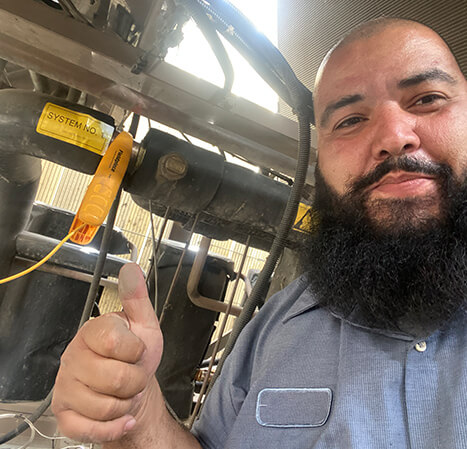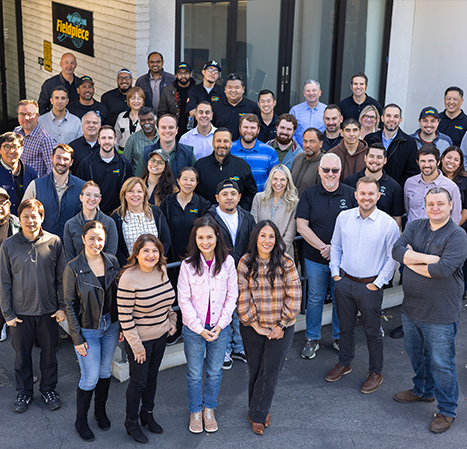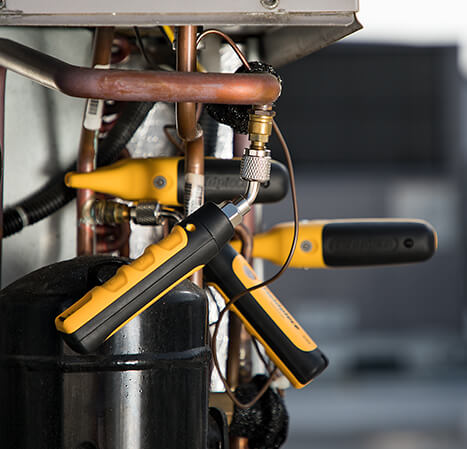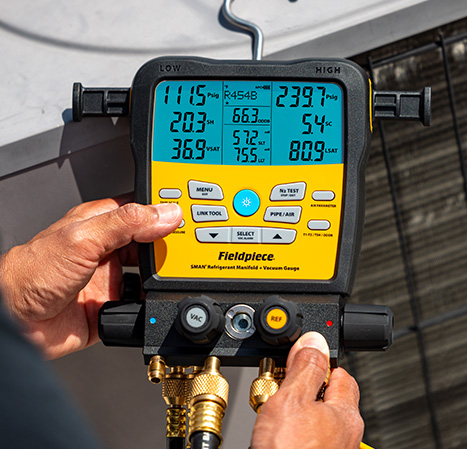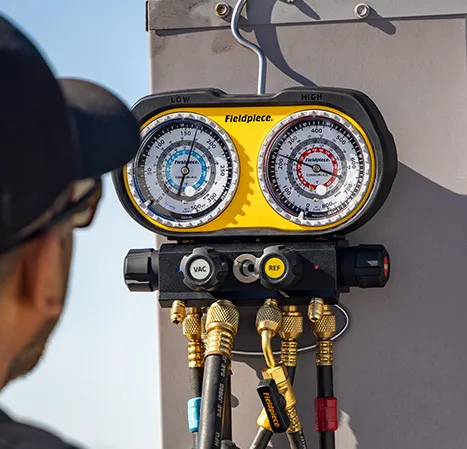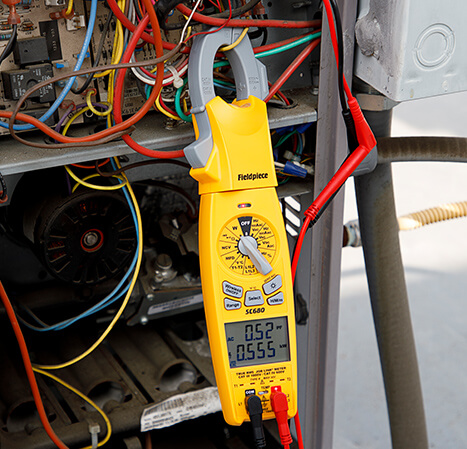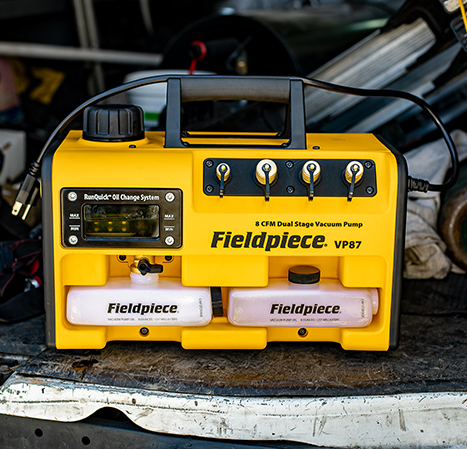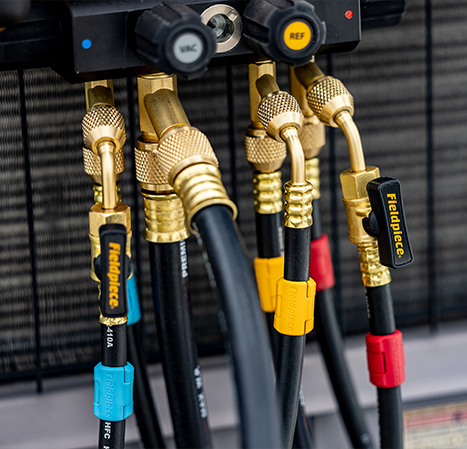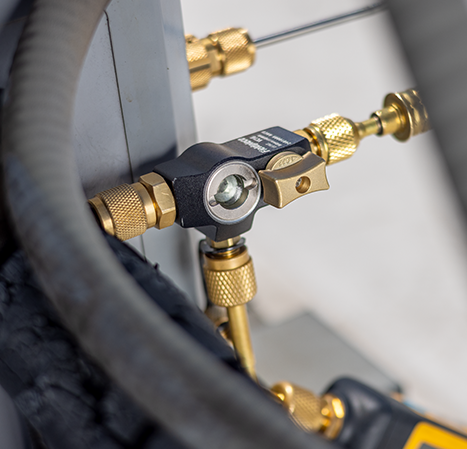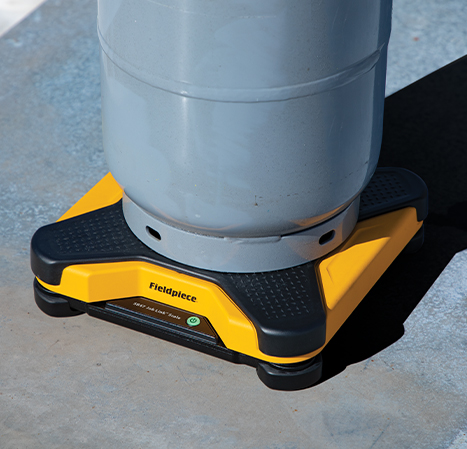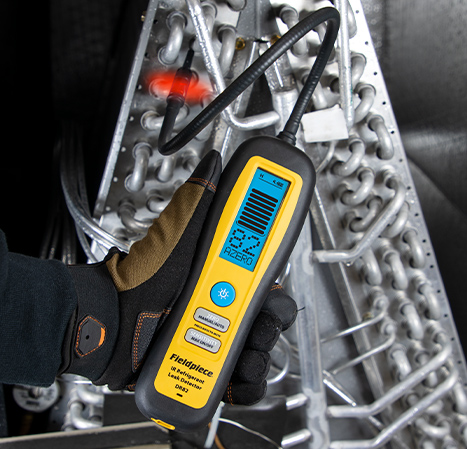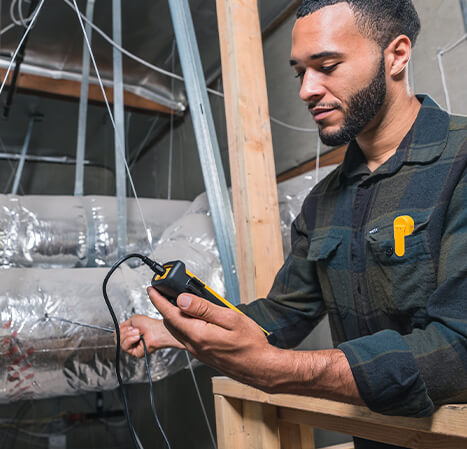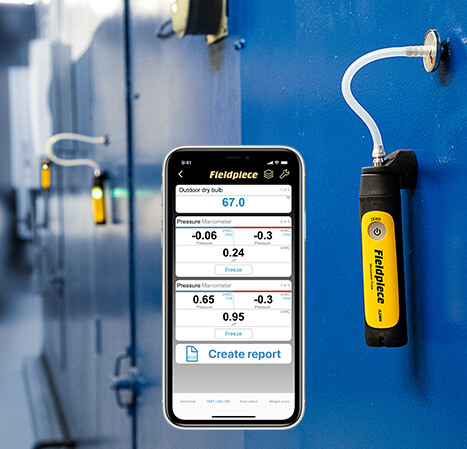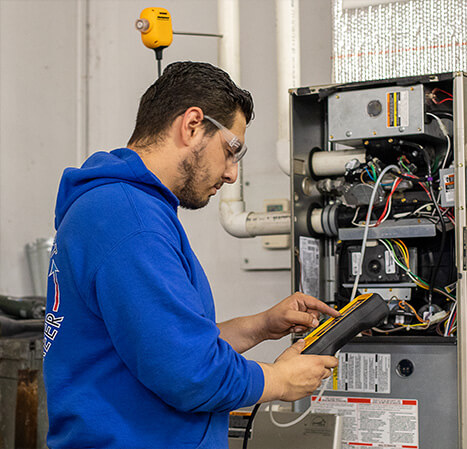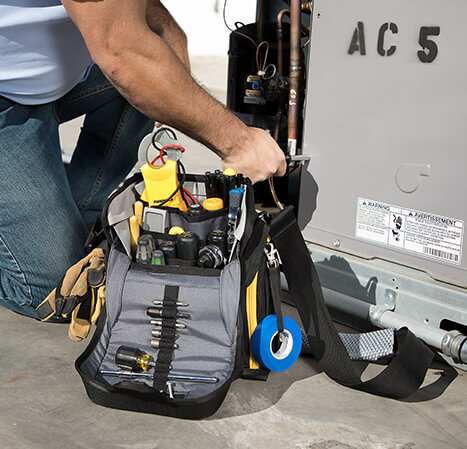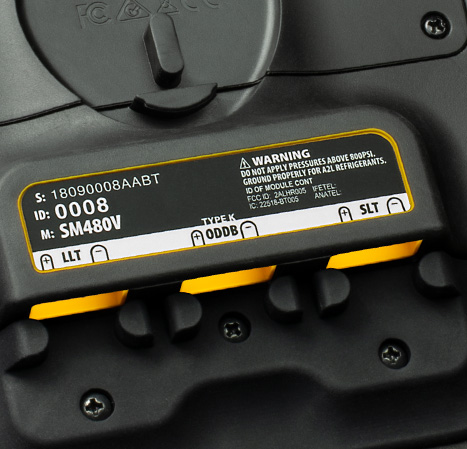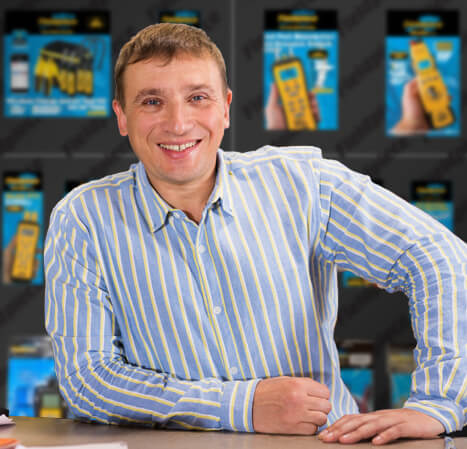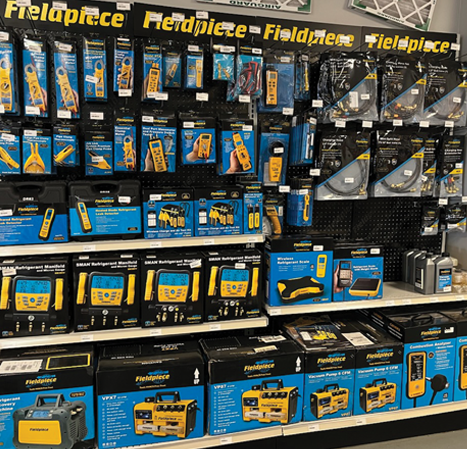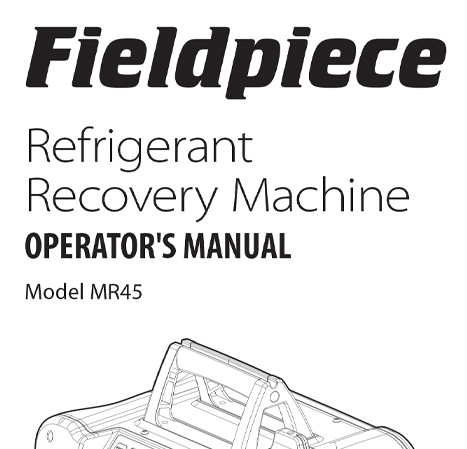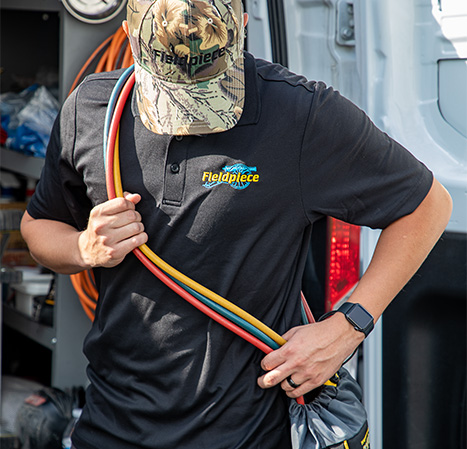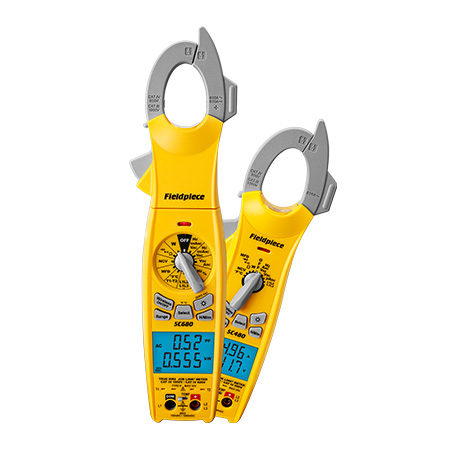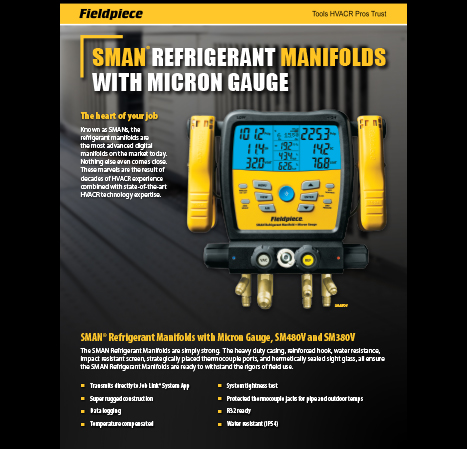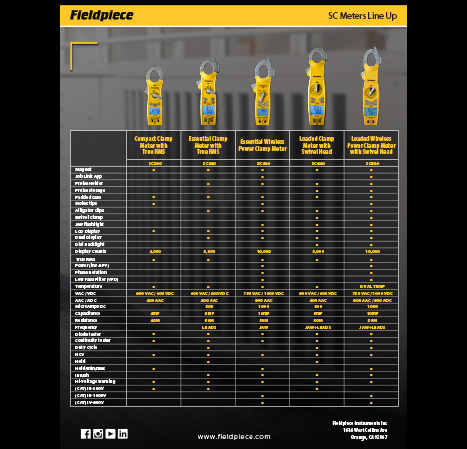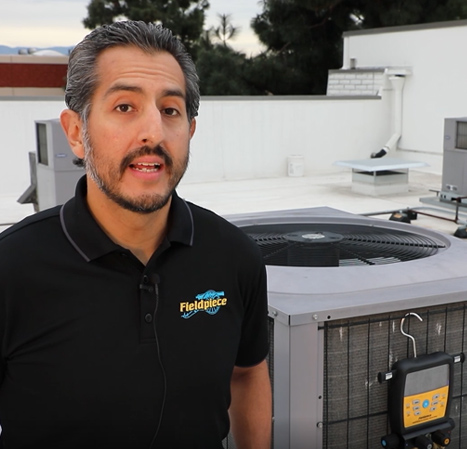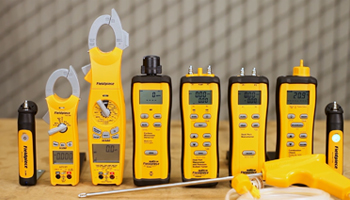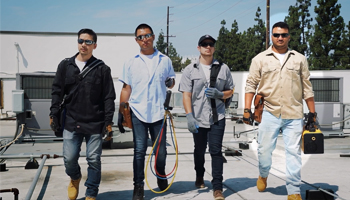We’ve been busy at Fieldpiece this year. We started our company with the idea that every HVACR professional in the field needs the best HVACR tools possible. So, we have spent the last 30 years perfecting our tools by taking the pulse of techs, studying where we could improve and creating new, innovative solutions.
Next year, we plan to continue developing new product innovations for HVACR technicians in the field to make their lives even easier. First, we’d like to go over a few of our latest products to hit the market.
Our two newest leak detectors truly raise the bar when it comes to sensitivity, reliability and durability. The Infrared Refrigerant Leak Detector, DR82 and the Heated Diode Refrigerant Leak Detector, DR58 are portable, powerful leak detectors that run for 10-18 hours per charge. They also have a bright blue backlit LCD screen that is easy to read and understand even in the darkest crawlspace. If you’re looking for a leak, you need one of these!
We also introduced a new generation of vacuum pumps! Our all-new Fieldpiece VPX7, VP87 and VP67 replaced the former models, offering even more reliability and speed. Built to cut back evacuation time, the latest pumps handle the demands of any jobsite, allowing you to get more work done and quickly. While all three models feature four in-line ports and our patented RunQuick® Oil Change System, each does offer something unique. From CFM flow rate options (10 CFM/8 CFM/6 CFM) to weight preferences (24 lbs. or 27 lbs.) – techs have the ability to pick the perfect pump suited for their needs. To enable an easier oil change, each pump comes with an extra oil bottle storage that makes it convenient to access Fieldpiece oils!
If you’re pulling a vacuum, you’re going to want a top-of-the-line vacuum gauge. The Wireless Vacuum Gauge, MG44 is the best. Along with being rugged enough to handle the field, it’s packed with all the features you need and it’s wireless. That means it works seamlessly with the Job Link® System App and our Fieldpiece SMAN® Refrigerant Manifold. You can also monitor evacuation measurements directly on the display. Without wires or bulky hoses, you’re free to connect your gauge directly at the system port.
We’re proud of our newest products and they’ve all earned the right to bear the Fieldpiece name. We’re also thankful for the techs out in the field who trust our HVACR product innovations and continue to use them each and every day.
 English
English French
French Spanish
Spanish

